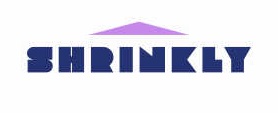With regards to private finance, understanding the implications of assorted kinds of loans in your credit score rating is crucial. Unsecured loans, that are loans not backed by collateral, can play a major function in your credit score profile. However are they bad to your credit score? This text will explore the nature of unsecured loans, their affect on credit scores, and the perfect practices for managing them.
What Are Unsecured Loans?
Unsecured loans are financial products that don't require the borrower to provide any collateral. Not like secured loans, the place the lender can declare an asset (like a house or car) if the borrower defaults, unsecured loans are based solely on the borrower’s creditworthiness. Frequent kinds of unsecured loans embrace personal loans, credit cards, and pupil loans.
How Unsecured Loans Have an effect on Your Credit Score
Your credit rating is a three-digit number that displays your creditworthiness and potential to repay debts. It's influenced by a number of factors, including:
Fee Historical past (35%): That is the most important think about your credit score. Making timely payments on your unsecured loans can positively impact your rating, while late funds can severely injury it.
Credit Utilization (30%): This refers to the amount of credit score you're using in comparison with your total available credit score. For credit playing cards, maintaining your utilization under 30% is mostly really useful. Excessive balances on unsecured loans can increase your utilization ratio, probably reducing your score.
Length of Credit Historical past (15%): The longer you might have credit score accounts open, the higher it's in your score. If you are taking out a new unsecured loan, it may lower your average account age, which may negatively affect your rating within the short term.
Credit score Mix (10%): Having quite a lot of credit score types (credit score cards, installment loans, and so on.) can positively influence your rating. Should you have just about any questions concerning where by as well as how to make use of are unsecured loans bad for your credit (personalloans-badcredit.com site), it is possible to e mail us in the web-site. Unsecured loans add range to your credit score mix, which could be helpful.
New Credit Inquiries (10%): If you apply for an unsecured loan, lenders will conduct a hard inquiry in your credit report. Multiple inquiries in a brief period can lower your rating quickly.
The pros and Cons of Unsecured Loans on Credit
Professionals
Building Credit score History: When you make regular payments on an unsecured loan, you may build a positive credit history, which is essential on your credit score.
Flexibility: Unsecured loans can be used for various functions, from consolidating debt to making giant purchases, which may also help enhance your financial scenario.
No Risk of Losing Assets: Since they don't seem to be tied to collateral, you don’t risk dropping your property or automobile if you default. Nonetheless, this does not mean you need to take out loans irresponsibly.
Cons
Higher Interest Rates: Unsecured loans usually come with higher interest rates than secured loans because they pose a larger threat to lenders. This can lead to larger total costs should you carry a stability.
Potential for Debt Accumulation: As a result of they're simply accessible, borrowers may be tempted to take on more unsecured debt than they will manage, leading to monetary strain and potential harm to their credit score scores.
Affect of Default: Defaulting on an unsecured loan can result in critical penalties, together with collections, lawsuits, and important damage to your credit score.
Finest Practices for Managing Unsecured Loans
To ensure that unsecured loans don't negatively affect your credit, consider the following best practices:
Make Timely Payments: All the time pay your bills on time. Establishing automated payments or reminders can enable you to keep on monitor.
Keep Balances Low: Goal to keep your credit utilization ratio beneath 30%. This means if you have a credit limit of $10,000, strive to keep your balance under $3,000.
Avoid Taking on An excessive amount of Debt: Assess your monetary scenario earlier than taking out an unsecured loan. Ensure that you could comfortably handle the month-to-month payments without stretching your price range.
Monitor Your Credit score Report: Commonly test your credit report for errors or discrepancies. You may receive a free report from each of the three major credit score bureaus as soon as a yr.
Consider Alternatives: When you've got poor credit score, explore alternatives to unsecured loans, equivalent to secured loans or credit-building products that may provide better terms.
Conclusion
Unsecured loans are not inherently bad in your credit, however they will have both constructive and adverse effects relying on how you manage them. By making well timed funds, keeping balances low, and being conscious of your general debt load, you can use unsecured loans to build your credit history and enhance your credit rating. However, it’s essential to stay disciplined and informed about your monetary choices to avoid the pitfalls that can lead to debt accumulation and credit score harm. In the end, responsible administration of unsecured loans can contribute to a healthier financial future.
